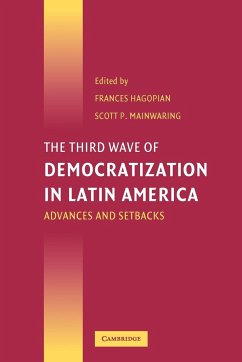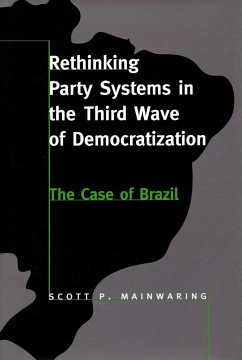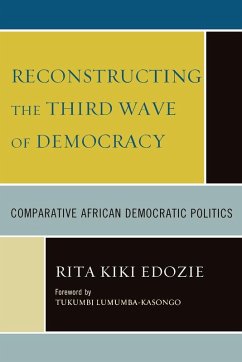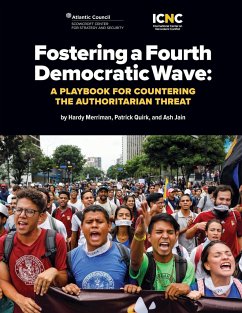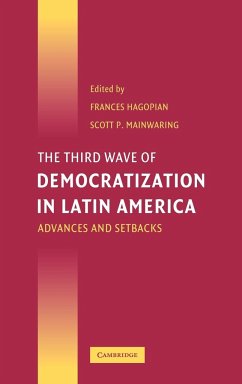
The Third Wave of Democratization in Latin America
Advances and Setbacks
Herausgeber: Hagopian, Frances; Mainwaring, Scott
Versandkostenfrei!
Versandfertig in 1-2 Wochen
96,99 €
inkl. MwSt.
Weitere Ausgaben:

PAYBACK Punkte
48 °P sammeln!
The late twentieth century witnessed the birth of an impressive number of new democracies in Latin America. This wave of democratization since 1978 has been by far the broadest and most durable in the history of Latin America, but many of the resulting democratic regimes also suffer from profound deficiencies. What caused democratic regimes to emerge and survive? What are their main achievements and shortcomings? This volume offers an ambitious and comprehensive overview of the unprecedented advances as well as the setbacks in the post-1978 wave of democratization. It seeks to explain the sea ...
The late twentieth century witnessed the birth of an impressive number of new democracies in Latin America. This wave of democratization since 1978 has been by far the broadest and most durable in the history of Latin America, but many of the resulting democratic regimes also suffer from profound deficiencies. What caused democratic regimes to emerge and survive? What are their main achievements and shortcomings? This volume offers an ambitious and comprehensive overview of the unprecedented advances as well as the setbacks in the post-1978 wave of democratization. It seeks to explain the sea change from a region dominated by authoritarian regimes to one in which openly authoritarian regimes are the rare exception, and it analyzes why some countries have achieved striking gains in democratization while others have experienced erosions. The book presents general theoretical arguments about what causes and sustains democracy and analyses of nine compelling country cases.





